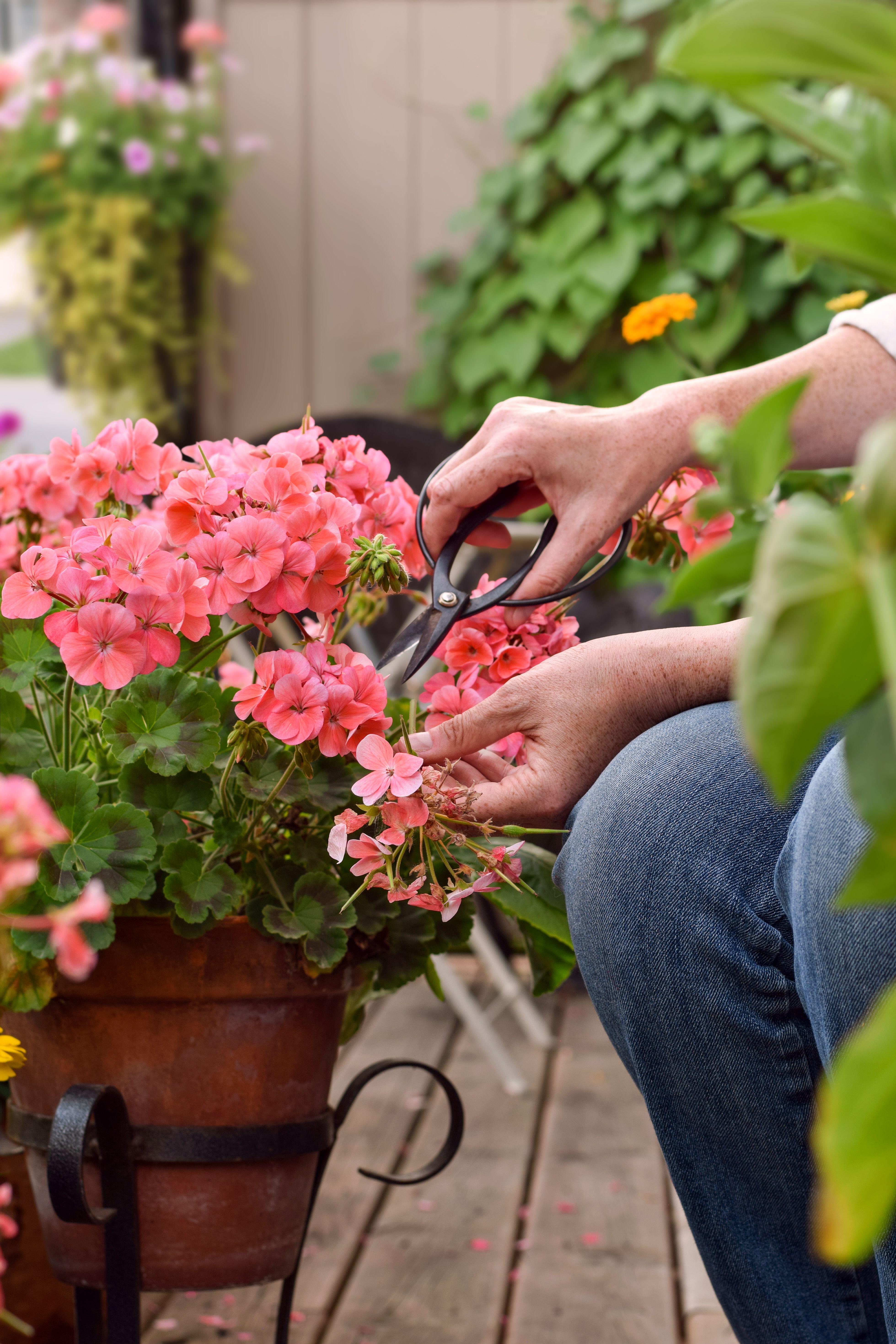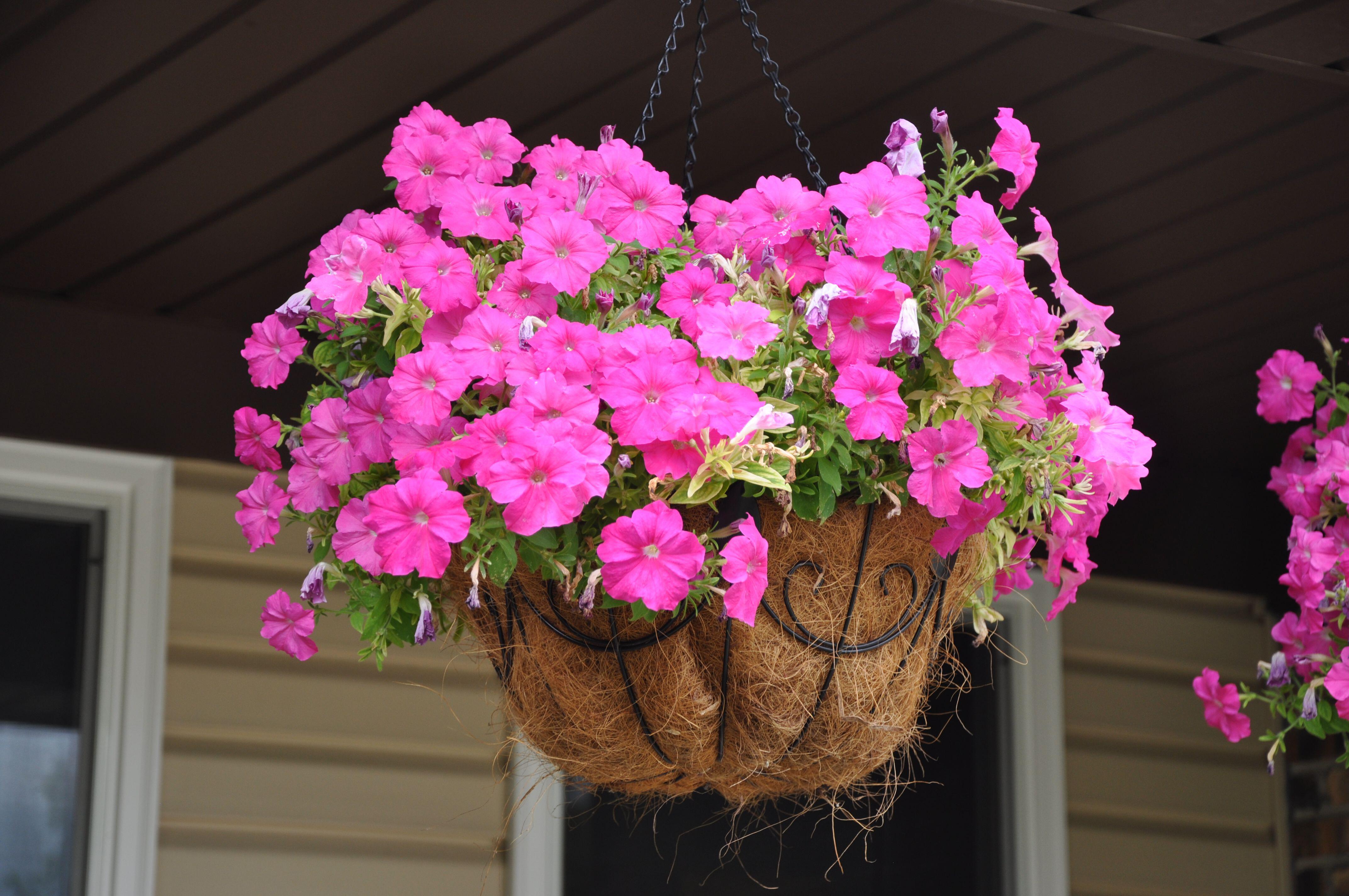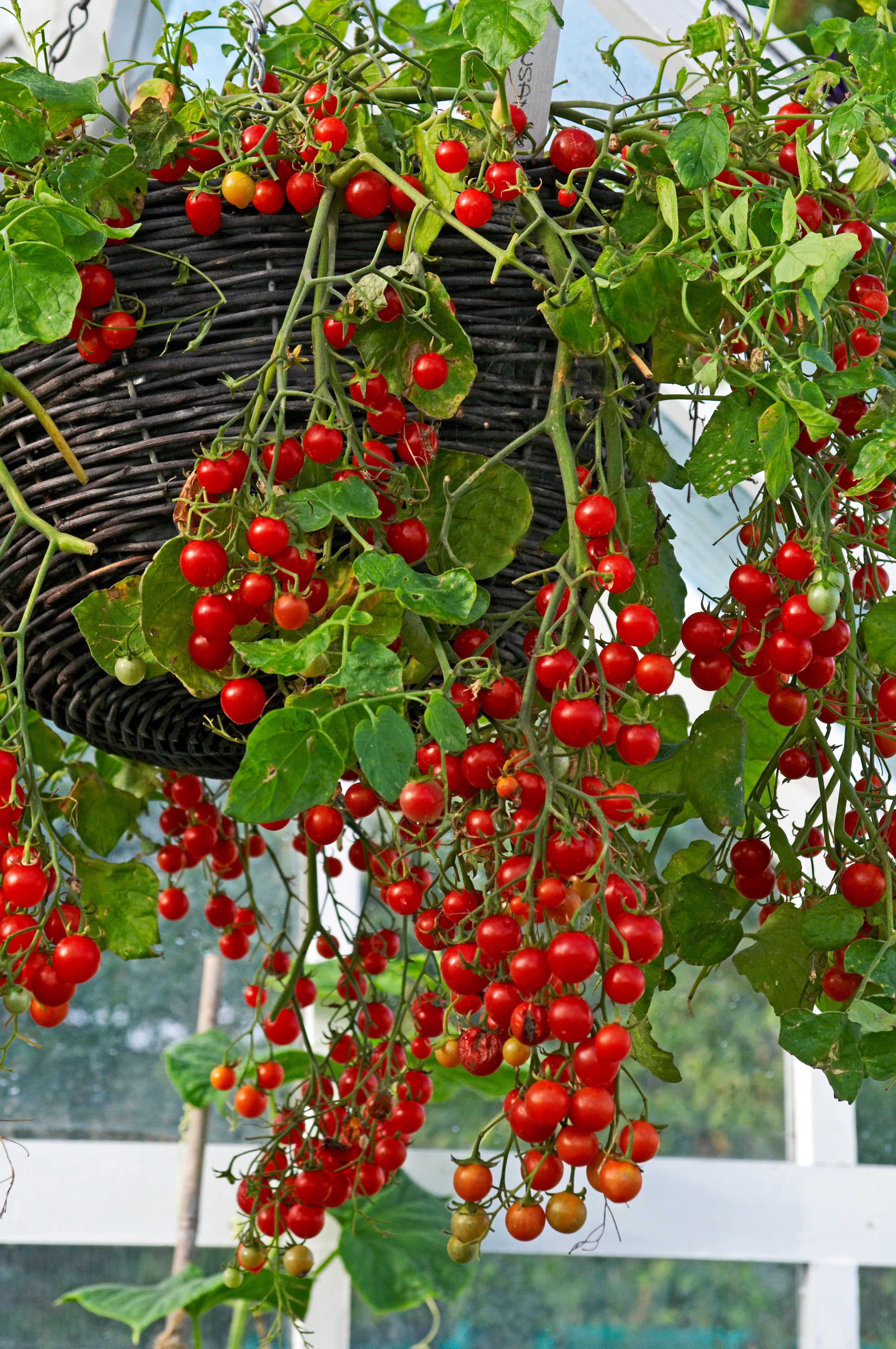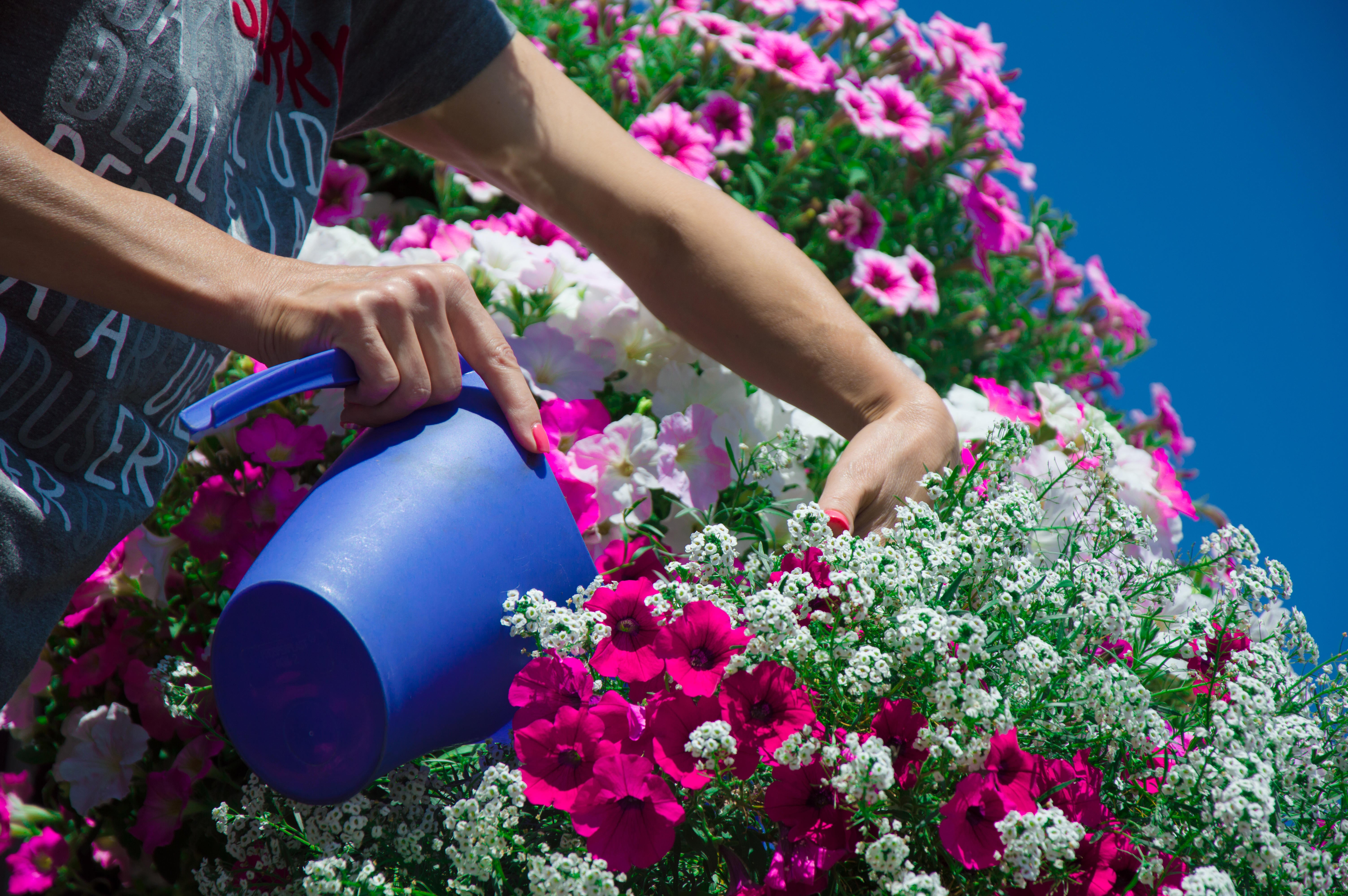
Many gardeners are reluctant to plant up hanging baskets and pots with annuals in early summer.
This is due to the fear that their vibrant displays will simply wither and die while they are away on their annual summer holidays.
However, there are effective strategies to minimise damage and ensure you don't return to a desolate collection of dead plants.
Here, some garden experts reveal their top tips to keeping your planted blooms, blooming - even if you are away.

Call on friends and family
An obvious one, but often the best solution is to get a neighbour, friends and family to pop over to water the plants, particularly those in pots and hanging baskets, on a daily basis in your absence.
In return, offer to water their garden when they are away, or at least bring them a gift back from your holidays to show your appreciation.
If you are relying on others to do your watering, make it as easy as possible for them, by positioning as many containers together as you can and leaving the hosepipe or watering can in easy reach to make the job as simple as possible.
If they are not familiar with watering, give them a little guidance on watering at the base of the plants, not on the leaves, so the plants are getting the moisture that they need, and giving them a thorough soaking until the water starts seeping through the bottom of the pot.
Shade your plants
Container plants and newly planted specimens are likely to be the most vulnerable in your absence, while the root systems of established border plants will have gone deeper and wider into the ground to find moisture.
So, huddle your pots of bedding plants together in a cool, shady spot, the RHS advises, or if you can’t move them, use a shade cloth to protect them from the sun.
If you don’t have natural shade, but you do have a sun umbrella in your garden, put it up and leave your pots underneath it.
If you huddle your pots together they will create their own microclimate which will help reduce evaporation. Also, try to keep them where they will be open to the elements, not under the eaves of the house, so that if it does rain they will feel the benefit.
Deadhead thoroughly

It’s wise not only to deadhead spent blooms but to actually also cut off all flowers because then the plant won’t have to work as hard to keep going and, hopefully, you will be greeted with a display of new flowers on your return.
Save hanging baskets

Hanging baskets are among the most difficult displays to save if you’re away for two weeks, unless you have someone who will water them for you. This is because often the compost area isn’t large enough to hold a lot of water so the compost will quickly dry out.
However, you could try placing the basket on top of a three-quarter full bucket of water, so the base of the basket is partially submerged and at least the roots will be getting some moisture.
Place the basket in the shade on top of the bucket and hopefully plants might be salvageable on your return.
Alternatively, find a shady spot in the garden and dig a hole into which you can place the basket (if you have only planted on the surface of the basket and not into the sides). Give the hole a good drench, place the basket in the hole, with the plants just above the surface and give them a really good soaking.
You could also cut holes in the base of a recycled two-litre plastic bottle, then upend it, securing the neck end in the compost of the hanging basket, and fill it with water, to allow the liquid to gradually seep down into the compost while you’re away.
Harvest crops

If you are growing crops in pots, harvest as many as you can before you go. Many, such as peas, French and runner beans and spinach can be picked, blanched and frozen, while tomatoes can be cooked and pureed into passata. If a neighbour is watering your plants, invite them to help themselves to ripe tomatoes, courgettes and other produce which is ready for eating.
Water well before you go

Give container plants a good soak before you go, placing pot saucers underneath to take up any run-off. Water at the base of the plant until the water comes to the soil surface. Let it drain and then repeat.
How to save water in the garden amid heatwaves and hosepipe ban
Five rare butterflies to keep an eye out for this summer
What you should be doing to your garden during this heatwave
Expert predicts what your garden will look like in 2050
These sap-sucking insects are rife in UK gardens. Here’s how to combat them
Looking for a lush lawn this summer? Expert reveals top ten tips







